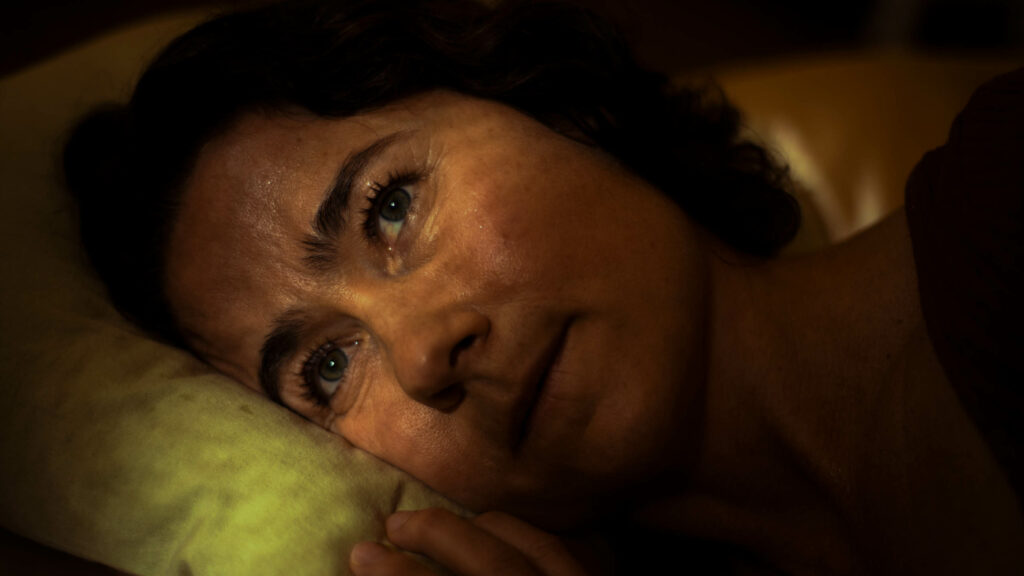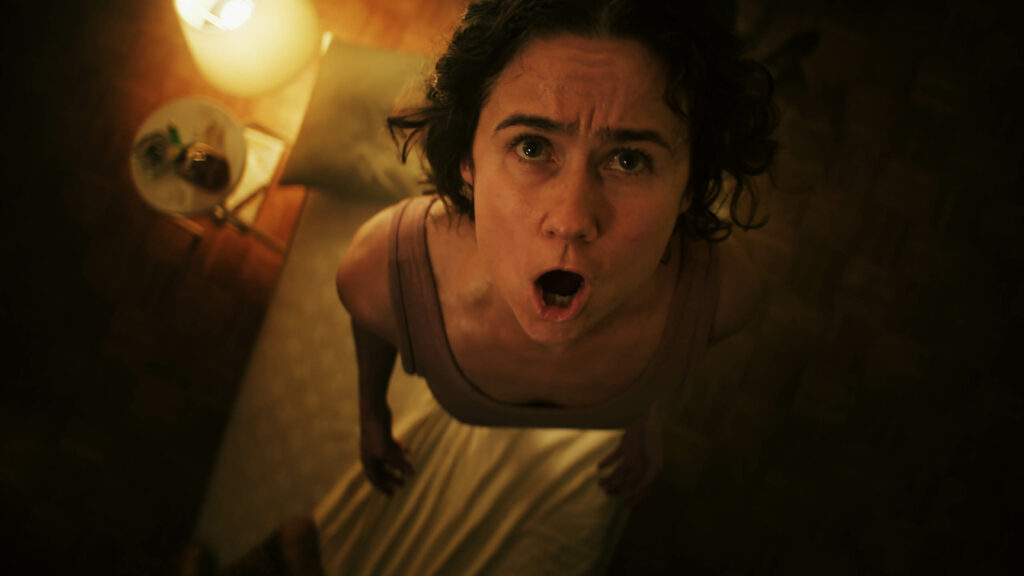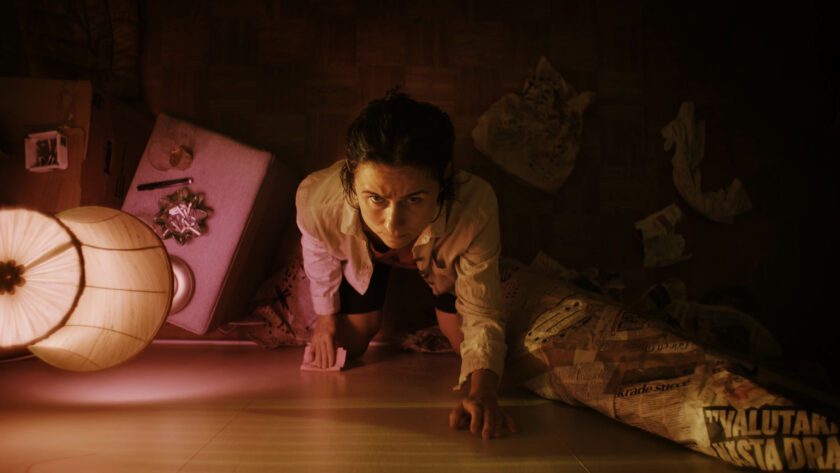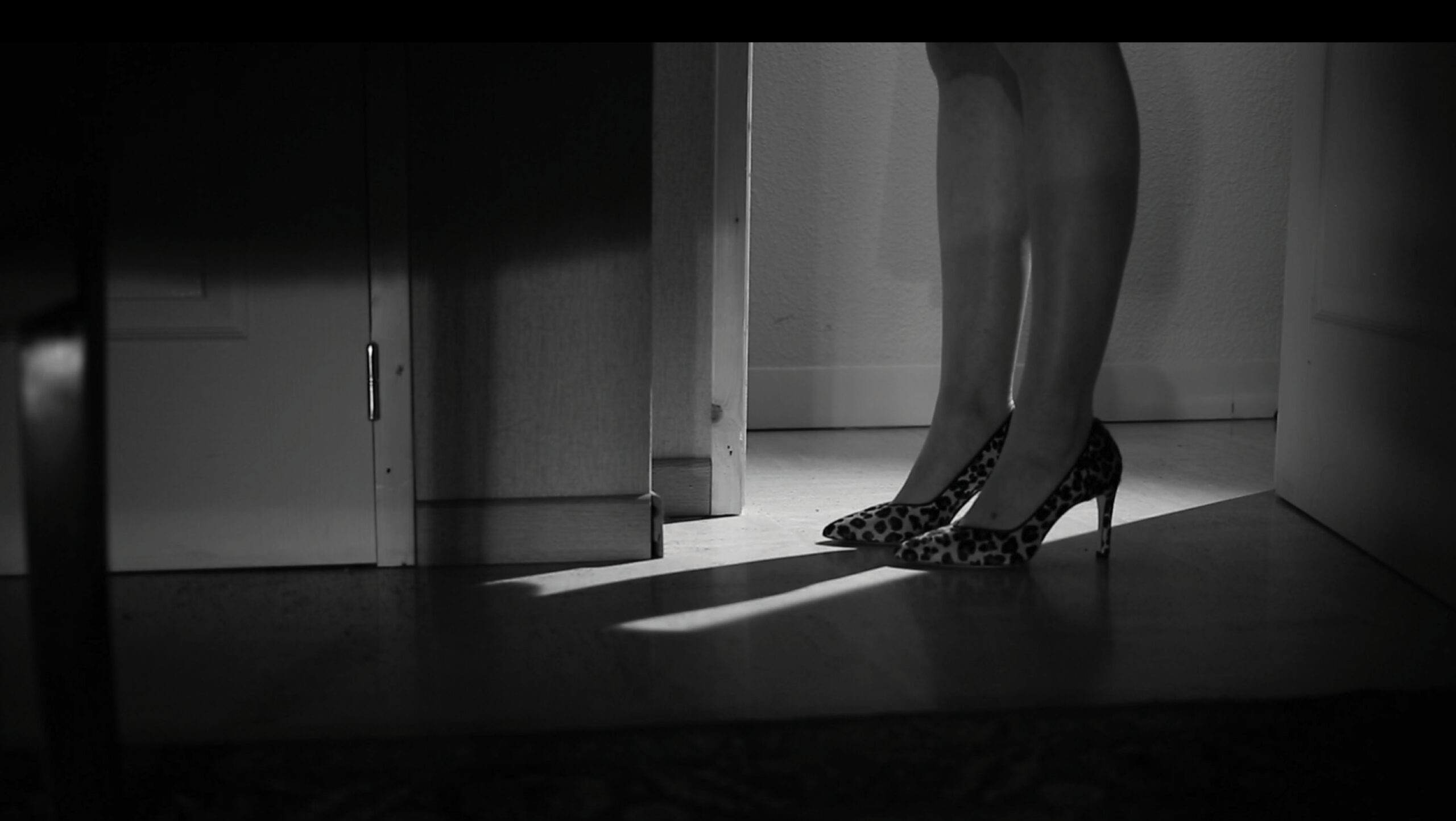Alexander Hancock reviews dramatic horror ‘Knocking’ and its exploration into mental illness.
After being discharged from the psychiatric ward, Molly’s journey back into the outside world proves strenuous. Her new home – a faceless apartment building – appears welcoming enough from the outside. Yet upon entering the fluorescent-tinted corridors and dimly lit living space, the warmth and comfort that Molly so desperately seeks dissipates. Fractured cracks branch across her mirror. Black flies skitter around the living room. And the elevator, shrouded in glaring white, bears a stark message in bold red paint: “Help”.
To make matters worse, a stifling heatwave washes across the city, snaking its way into the apartment building in full force. Reeling from the suffocating heat, Molly falls into a murky delirium. Vignettes of a visit to a beach with a woman come to the surface but are quickly interrupted by a forceful knocking from above. Rattled by the discovery, Molly goes to her neighbour upstairs to inquire about the commotion. Yet to her surprise – or suspicion – the man claims to know nothing about the source of the noise and promptly waves her off.

The strange happenings don’t end there. The screams that reverberate outside keep her from sleeping and when a faint whimpering echoes through her bathroom vent, her previous suspicions about the safety of her new environment begin to crystallise.
Director Frida Kempff suffuses the film’s narrative with this sense of mystery from beginning to end, leaving the viewer in the dark with few clues or hints to work with. Marking the Swede’s first venture into the world of fiction, ‘Knocking’ weaves together elements of drama and horror to produce a slow-burn and carefully crafted psychological thriller that delves into the life of a woman ravaged by anguish. Coursing through the film is the director’s acute awareness of the invisibility of trauma that is so often left unattended and unaddressed by the outside world. Kempff astutely captures the isolation experienced by victims of trauma, framing the claustrophobic atmosphere through extreme close-ups and a pulsating score. Still riddled with grief, Molly’s increasing sense of detachment that separates her from the world outside elicits a real sense of sympathy from the audience.
But that still doesn’t answer the question: why was she under psychiatric care? With the remnants of her past not yet pieced together, our understanding of the character extends only as far as her name. Questions of what she did for a living or whether she had a family are left unanswered. So, too, are the circumstances surrounding the disappearance of the woman from her memories, though a piercing scream that breaks Molly’s stupor isn’t exactly a vote of confidence. While Molly appears to have recovered from her time at the psychiatric ward at the start of the film, little by little, her seemingly steadfast exterior begins to fall apart. Watching her character deteriorate with each passing day is nothing short of tragic, but does little to suppress one’s doubts about her sanity. When she witnesses a man violently jostling his partner outside, she calls the police out of fear for the woman’s safety. But when the police confront the couple, the two promise that nothing happened. Molly sees a woman jump to her death, but when she runs downstairs to locate the body, nothing is there. As Molly’s stability begins to unravel, so, too, do our hopes that her time at the psychiatric ward healed her trauma.

This is perhaps the greatest strength of ‘Knocking’. Kempff’s decision to hold a mirror up to the audience, exposing our readiness to question the experience of a victim of mental illness, is executed masterfully. One scene in particular cleverly features a SnorriCam – a self-facing bodycam – whereby the audience watches Molly shaking with fear after hearing the incessant knocking again. Convinced that someone has been abducted and is trying to communicate with her, Molly accosts the men in her apartment, demanding that they prove their innocence. Instead, they surround her, calling her “insane” while threatening to call the police. Through Kempff’s inventive camera angles, we too, circle Molly, watching her descend into a further state of paranoia as complicit bystanders.
Short, sharp, and suspenseful, Kempff’s ‘Knocking’ is a profound meditation on the gaslighting culture that so often affects victims of trauma. Anchored by Cecilia Milocco’s powerful yet understated performance, the film brims with tension and unease that builds to a gripping final act. Pairing rich red hues with unsettling sound design, the magic of ‘Knocking’ is enough to turn the innocent sound of a pin drop into a figment of your worst nightmare.




